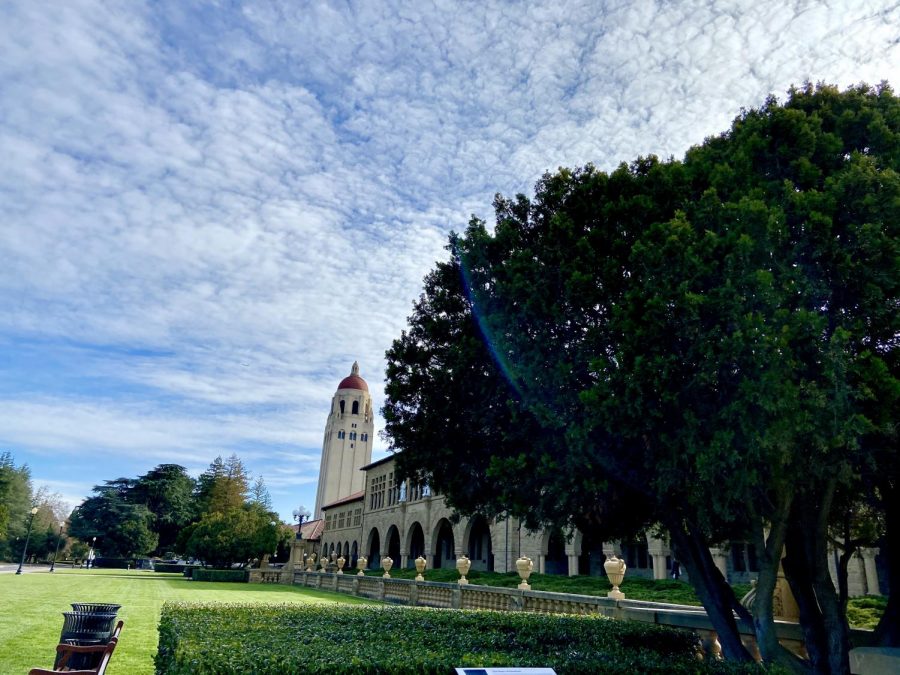The long-awaited letter that would ultimately determine his future arrived in his mailbox. His hands shook as he slowly tore the envelope open, hoping his stats were competitive enough for him to receive admissions at one of the most prestigious institutions in the world. He felt the pressure of attending an elite school in order to become successful. He was relieved when he read the words “On behalf of the admissions committee, it is my pleasure to offer you admission to the MIT class of 1975.”
James Korff eventually graduated with a degree in civil engineering and architecture with the name “MIT” on his diploma. How much would the name of this prestigious university actually impact his future?
“People who would interview me, they would say things like, ‘Oh, MIT. That’s a good school.’ Therefore, I think it impacted my chances of getting the job offer,” Korff said.
However, Korff would soon give up his career in engineering and follow another passion: teaching.
Almost 45 years later, the pressure to attend an elite university has not changed.
Since 1983, US News annually reports the top 50 universities in America. The label of a “top” university causes people to assume that these colleges will lead to success, pressuring many students to believe that they need to attend colleges from this specific list to become successful.
Kristin Vernon, a guidance counselor at Carlmont, believes that attending a “top” university isn’t necessary. She believes that this pressure stems from the rumors spread of success being a result of attending an elite institution.
“There is a lot of talk amongst peers and their families that they aren’t gonna be successful unless they go to one of those ‘top’ colleges,” Vernon said.
Tiffany Chang is currently a freshman studying business and economics at University of California Los Angeles (UCLA).
Chang recalls her application experience. Prior to applying, Chang researched which school she believed she would benefit most out of experience-wise, as well as after graduation. UCLA seemed to be the perfect fit for what she valued in her future university.
“I did my research based on each school’s programs and resources for my major by looking at business clubs, mentorship programs, or panels with different companies. I also chose a school that I could envision myself at. At UCLA, I met many people who set an example of who I would want to be,” Chang said.
After envisioning herself at an elite school like UCLA, she recalls her experience of waiting for the acceptance letter through the pressure and anticipation.
“Before college acceptance letters were released, many of us were anxious and compared our grades or extracurriculars,” Chang said.
The comparisons made a competitive environment, creating unnecessary pressure for her and her peers.
After the suspense of waiting four months for a response, Chang received the same acceptance letter from UCLA that Korff received from MIT.
“Congratulations! It is our great pleasure to offer you admission to UCLA…”
Like Chang, many feel the pressure to attend an elite university and often compare themselves to their classmates.
While some feel this pressure from their peers, others feel it from their parents.
Ethan Matsuda, a sophomore, is one of the many students feeling such a burden. Growing up in an Asian-American household, Matsuda feels that education is highly valued in his family. Going to an elite university is ingrained into one’s brain from a young age. Both of his parents also went to highly notable universities, setting already high standards for Matsuda.
“Both of my parents went to UC Berkeley, and I feel like the expectation is for me to follow in their footsteps,” Matsuda said.
Many students also feel the pressure to excel due to the sacrifices made by their parents — namely, immigrant parents.
Sohie Pal, a sophomore, feels the pressure to succeed and attend an elite school because of the hardships her parents endured when immigrating to America from India.
“My parents have high expectations for me, mainly because they worked up from nothing. Therefore, they want me to go to a good college and get a good job,” Pal said.
From Pal and her parents’ point of view, attending an elite university means more success.
However, some question if it is worth the financial stress to attend these elite colleges. The majority of these labeled top universities often come with an expensive price tag.
Nicholas Voong, a sophomore, believes that attending a less prestigious, but affordable university at first may be beneficial.
“Financially, it is a lot more affordable to attend a city college or state university first. Student loans will be a problem that you will have to deal with in the future, and you can save a lot by attending a community college first,” Voong said.
Just the academic fees itself can add up; tuition at prestigious schools, like the Ivy Leagues, can cost as much as $57,200 per year.
According to the Department of Education, students expect to pay off their student loans within six years. In reality, however, it takes 20 years to pay off student debts.
Even though Voong isn’t expecting to attend an elite university, he still feels the expectations from his surroundings.
“I think it is kind of socially normal to go to a top college,” Voong said.
At the end of the day, Vernon believes that one’s success isn’t defined by what college they attend, but rather the overall qualities they have.
Vernon said, “When employers are looking to hire people, they aren’t just looking at what college they attend. They are also looking at their people skills and looking at the well-rounded experience that they have taken advantage of.”














Sheila Ramirez • Jan 19, 2020 at 9:28 pm
Great balanced article. Nice job